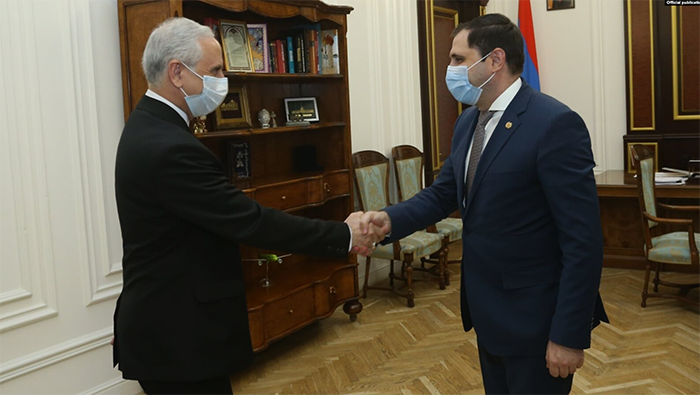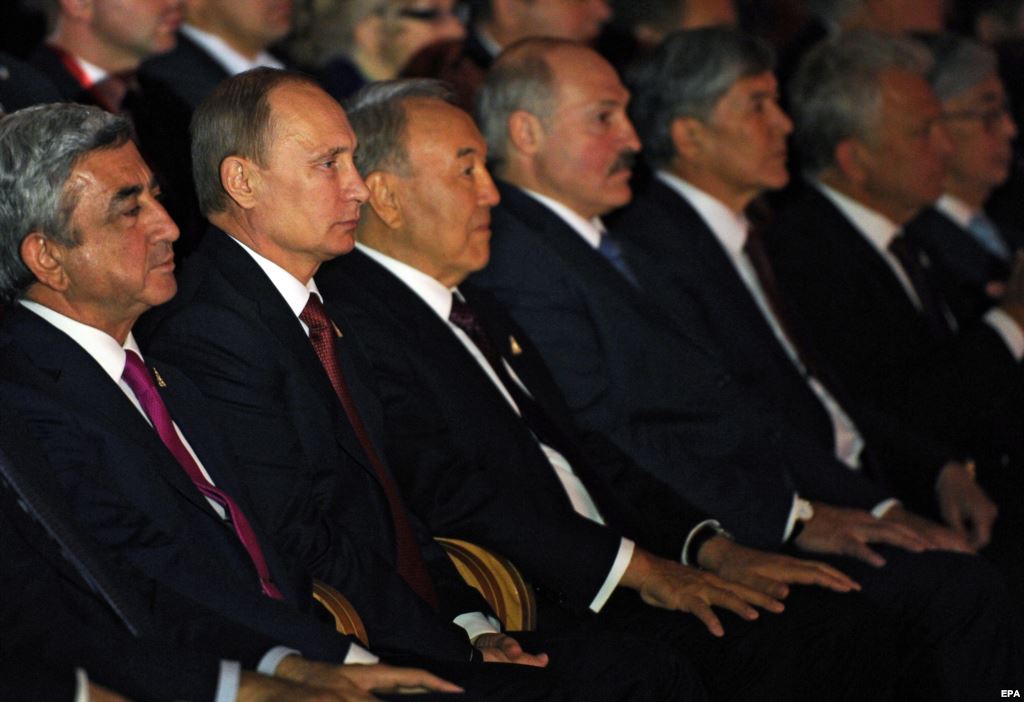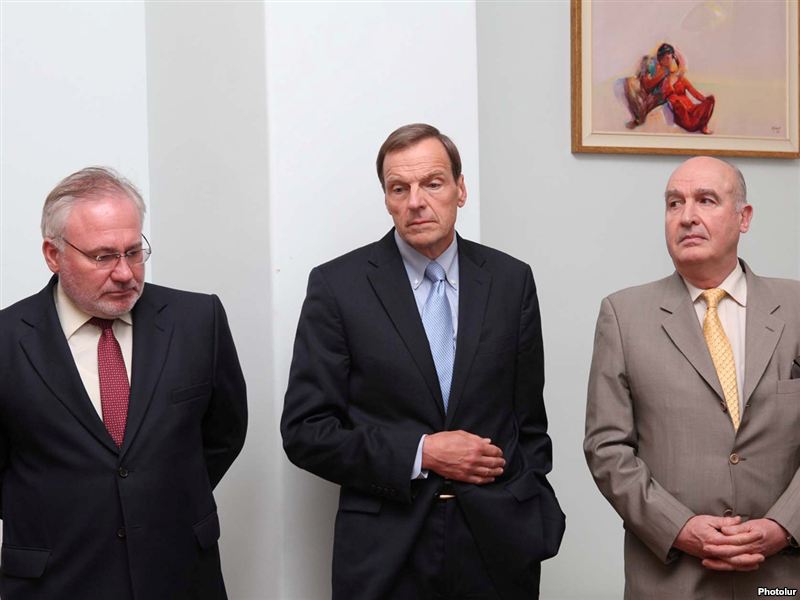YEREVAN — Deputy Prime Minister Suren Papikyan told Iran’s ambassador in Yerevan on Wednesday that Armenia will complete soon work on an alternative road that will allow Iranian trucks to bypass an Azerbaijani roadblock set up on the main highway connecting the two states.
Azerbaijan gained control over a 21-kilometer section of the highway last December following an Armenian troop withdrawal from border areas along Armenia’s southeastern Syunik province. Azerbaijani officers deployed there began stopping and taxing on September 12 Iranian trucks delivering goods to and from Armenia. Many truck drivers have refused to pay the “road tax” reportedly ranging from $150 to $350 per vehicle.
Iranian Ambassador Abbas Badakhshan Zohouri has since met with various Armenian officials to discuss the resulting disruptions in cargo traffic between Armenia and Iran. He said last week that Tehran hopes the Armenian government will speed up the ongoing reconstruction of the alternative Syunik road bypassing Armenian-Azerbaijani border areas.
In a statement, Papikyan said he assured Zohouri that the 70-kilometer bypass road will be fully refurbished “by the end of November.” He also reiterated that it will be extended further north to divert traffic from a tortuous mountain pass outside the Syunik village of Tatev.
Papikyan added that he also reaffirmed the Armenian government’s plans to build or refurbish other Syunik roads leading to the Iranian border. The government hopes that the European Union and other international donors will finance the ambitious project worth an estimated $1 billion.
Iran is a major trading partner of Armenia and one of the landlocked country’s two conduits to the outside the world. Up to one-third of Armenia’s foreign trade is carried out via the Islamic Republic and its Persian Gulf ports in particular.
Yerevan has reacted cautiously to Baku’s decision to levy hefty fees from Iranian vehicles entering Armenia. Prime Minister Nikol Pashinyan suggested on September 15 the move is aimed at pressuring Armenia to open a transport corridor that would connect Azerbaijan to its Nakhichevan exclave through Syunik. But he stopped short of demanding an end to the serious hurdle to Armenia’s transport links with Iran.
Gohar Iskandaryan, a Yerevan-based Iran expert, also pointed to Papikyan’s recent remark that it is up to Tehran and Baku to sort out the road crisis.
“Iran and Azerbaijan are talking about the problem in a quite forceful way, whereas Armenia is making no such statements,” Iskandaryan told RFE/RL’s Armenian Service. “On the contrary, [Yerevan] has adopted a very passive stance, saying that this is beyond the scope of our powers.”
Shortly after Baku set up the roadblock the Iranian military reportedly began massing troops and holding exercises along the Iranian-Azerbaijani border. Azerbaijani President Ilham Aliyev criticized the drills on Monday. Iran’s Foreign Ministry dismissed the criticism.










